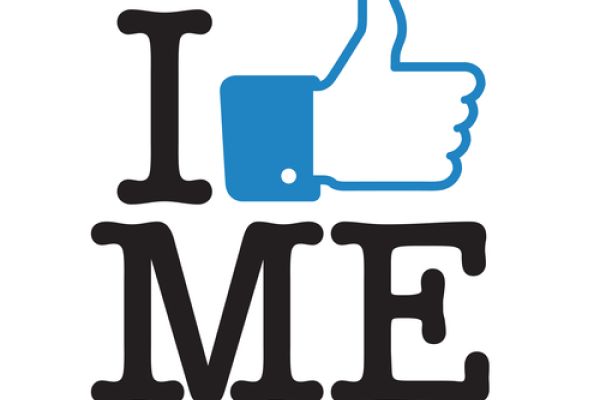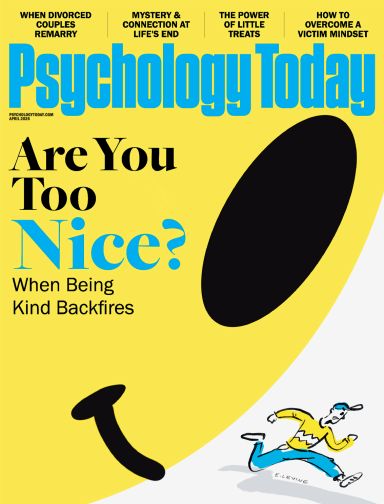HUMANS CAN BE GOOD
Verified by Psychology Today

Ethics and Morality
Are Humans Naturally Good, or Intrinsically Evil?
It depends on where one is in history and social status.
Posted July 29, 2021 | Reviewed by Lybi Ma
The notion of humans being evil predates Christian theology and pervades modern philosophy from Hobbes on. Social psychology contributed the bracing insight that most of us are capable of casual homicide. Are all these thinkers right?
Evolutionary Perspectives
The concept that life forms are inherently selfish is widely shared though most likely wrong. Ecologists are discovering that plants are connected in mycorhizal networks that trade glucose and other nutrients for their mutual benefit, for instance. Plant communities participating in these cooperative networks actually do better than if they were independent.
The case for evolved cooperation among humans is surprisingly strong when our species is compared with most other primates. Even young children are intensely social and excel at following social cues to find hidden rewards, a test that chimpanzees and other apes flunk (1). Young children are also very good at imitating others.
These social characteristics are best explained by acknowledging that humans are adapted for social cooperation in ways that do not apply to other primates (with the possible exception of bonobos who manifest unusually low levels of social aggression) (2).
What makes these findings so compelling is that humans do not have other clear cognitive differences compared to the apes. This reality refutes persistent claims of human intellectual superiority (3).
If humans are strongly prosocial, how is it possible that we would participate in destructive wars and genocidal conflicts around the globe from Cambodia to Germany, and from China to Rwanda?
The Critique of Human Depravity
Social psychology set about determining whether evil actions are intrinsic to our species. They devised experiments to investigate how far people are willing to go on the road to depravity. According to influential researchers from Stanley Milgram to Phillip Zimbardo, the answer is quite a long way.
Inspired by what is called the banality of evil revealed in Nazi trials at Nuremberg, and Jerusalem, the social psychologists concluded that anyone can turn homicidal if they are subjected to social pressures of conformity and obedience. They might fatally electrocute the subject in a fairly pointless learning experiment when instructed to do so by an authority figure, for example. They concluded it is the situation and not the person that is to blame.
Some of these iconic experiments have been subjected to investigative journalism and have not emerged at all well (4). There were numerous procedural problems and experimenter biases, including failure to follow published protocols and the use of coercive procedures that would not be permitted today. The experiments were so staged and manipulative, that they tell us little to nothing about naturalistic human behavior or psychology.
Of course, this critique does not get us past the unpleasant reality of ongoing brutal wars and genocides.
Why Actual Tyranny Lives On
No one can ignore evidence of actual evil in the world but that does not compel us to see human beings as naturally depraved. Far from it!
There are two key points in the emergence of tyranny that are often overlooked by social psychologists. It is not just a matter of the person and the immediate situation. We must also consider the broader societal context.
article continues after advertisement
The horrors of a Pol Pot dictatorship or the excruciating experiences of North Koreans under the Kim dynasty are peculiar to complex modern societies. They simply could not exist in the egalitarian world of hunter-gatherers where communal food-sharing was standard.
Simpler societies lack an authoritarian power structure and are based on voluntary cooperation in the sense that individuals may migrate between subsistence groups to avoid interpersonal conflict. Conflicts mostly arise from reproductive tensions between men that can turn deadly.
These societies generally do not commit group atrocities, however. They get involved in warfare only in specific situations where sedentary groups are based on valuable and defensible resources, such as the game and fish at Lake Turkana, the only archaeological evidence of hunter-gatherer warfare (3).
Authoritarian power structures arise only in complex societies. These are quite recent, emerging some five thousand years ago in Mesopotamia (5). They depend on a well-developed status hierarchy. (Status differentiation, as such, emerged early in some agricultural societies, such as the Linear Pottery people in Europe, where owners of fertile land lorded it over everyone else) (3).
The concentration of wealth in early cities was associated with endless warfare, slavery, and the many brutalities brought on by “civilization.”
Money may well be the root of all human evil. We are living in the midst of nightmarish inequality where a handful of “Big Men” billionaires stand astride the globe. Contemporary business greed is waging an ongoing war of property against humanity and trashing the planet in the process.
Humans may be inherently good but we have assembled a horrifyingly long rap sheet over the past five thousand years, and it is not getting any shorter.
article continues after advertisement
References
1 Wobber, V., Herrmann, E., Hare, B., Wrangham, R., and Tomasello, M. (2014). Differences in the early cognitive development of children and great apes. Developmental Psychobiology, 56(3), 547-73. doi: 10.1002/dev.21125.
2 Hare, B., Wobber, V., Wrangham, R. (2012). The self-domestication hypothesis: evolution of bonobo psychology is due to selection against aggression, Animal Behaviour,83(3), 573-585, https://doi.org/10.1016/j.anbehav.2011.12.007.
3 Barber, N. (2020). Evolution in the here and now: How adaptation and social learning explain humanity. Guilford, CT.:Prometheus/Rowman and Littlefield.
4 Bregman, R., Manton, E. (translator), and Moore, E. (translator, 2020). Humankind: A hopeful history. Boston, MA: Little, Brown and Company.
5 Fagan, B. M., and Durani, N. (2017). World prehistory: a brief introduction. New York: Routledge, Taylor and Francis.Morereferences
About the Author

advertisement
Ethics and Morality Essential Reads

Milgram’s Obedience to Authority Experiment Comes Home

Becoming a Better Person Takes Time

The Moral and Mental Health Struggles of Veterinary Technicians

The Golden Rule: Obsolete Relic or Absolute Imperative?

Should Free Speech Have Limitations?
advertisement
Get the help you need from a therapist near you–a FREE service from Psychology Today.

Cities:
- Atlanta, GA
- Austin, TX
- Baltimore, MD
- Boston, MA
- Brooklyn, NY
- Charlotte, NC
- Chicago, IL
- Columbus, OH
- Dallas, TX
- Denver, CO
- Detroit, MI
- Houston, TX
- Indianapolis, IN
- Jacksonville, FL
- Las Vegas, NV
- Los Angeles, CA
- Louisville, KY
- Memphis, TN
- Miami, FL
- Milwaukee, WI
- Minneapolis, MN
- Nashville, TN
- New York, NY
- Oakland, CA
- Omaha, NE
- Philadelphia, PA
- Phoenix, AZ
- Pittsburgh, PA
- Portland, OR
- Raleigh, NC
- Sacramento, CA
- Saint Louis, MO
- San Antonio, TX
- San Diego, CA
- San Francisco, CA
- San Jose, CA
- Seattle, WA
- Tucson, AZ
- Washington, DC
Are you a Therapist? Get Listed Today
More from Nigel Barber Ph.D.

Evolutionary Psychology
3 Min Read
Why the Baby Bust Is Our Biggest Problem
Reproduction is a critical biological imperative and we are failing at it.

Health
3 Min Read
The Surgeon General’s Report Does Not Show Alcohol Causes Cancer
The causal evidence for alcohol causing cancer is weak.

Media
3 Min Read
The Origins of the Subjective Assault on Our Way of Life
Personal Perspective: If it feels true, it may be true enough to pass muster.

Animal Behavior
3 Min Read
From shared territories and play, to politics and pay, animals may negotiate.
More from Psychology Today

Ethics and Morality
5 Min Read
What Can Gandhi Teach Us Right Now?
The Gandhian principle of satyagraha—forceful and loving adherence to truth—can be our guide today.

Ethics and Morality
5 Min Read
Kenny Rogers explains the probabilities of life.

Self Tests
3 min
How Machiavellian are you?

Ethics and Morality
5 Min Read
If You Are Treated Badly, Don’t React Badly
“An eye for an eye makes the whole world blind.”

Ethics and Morality
4 Min Read
Is Radical Individualism Destroying Our Moral Compass?
People should pursue their own versions of happiness; yet, what is freely chosen is not automatically good.

Ethics and Morality
7 Min Read
What Actually Is Evil? And What Makes People Carry Out Evil Acts?
“Evil people” and “evil acts” are common, but much less common than is generally believed. Most people are moral and self-controlled.

Ethics and Morality
4 Min Read
Ethical Principles in Mental Health Care
Autonomy, non-maleficence, beneficence, and justice are ethical principles that guide mental health care.

Ethics and Morality
3 Min Read
The Real Meaning of ‘Good’ and ‘Evil’
Good means a lack of self-centeredness, while evil means an inability to empathize with others.



Recent Issues






Psychology Today © 2025 Sussex Publishers, LLC
Find a Therapist
- Get Help
- Find a Therapist
- Find a Treatment Center
- Find a Psychiatrist
- Find a Support Group
- Find Online Therapy
- United States
- Austin, TX
- Brooklyn, NY
- Chicago, IL
- Denver, CO
- Houston, TX
- Los Angeles, CA
- New York, NY
- Portland, OR
- San Diego, CA
- San Francisco, CA
- Seattle, WA
- Washington, DC
Get Help
Mental Health
Personality
Personal Growth
Relationships
Family Life
Do I Need Help?
Recently Diagnosed?
Talk to Someone
- Find a Therapist
- Find a Treatment Center
- Find a Psychiatrist
- Find a Support Group
- Find Online Therapy
Magazine

Being overly polite might seem kind, but it often leads to problems anyway, in relationships, with friends, and at work.
Today
News
- Is “Paying Attention” Overrated for Kids?
- How AI Could Shape Our Relationships and Social Interactions
- Binge Now, Pay Later: The Effects of Junk Food on Your Brain
- How Stress May Increase the Risk of Stroke
Essential Reads
- Why Some Take Pleasure From the Story of Luigi Mangione
- Why Do We Spend So Much Money on Our Pets?
- Does Kissing Make You Anxious? It’s a Question of Bacteria
- How to Avoid Marital Burnout
Trending Topics
